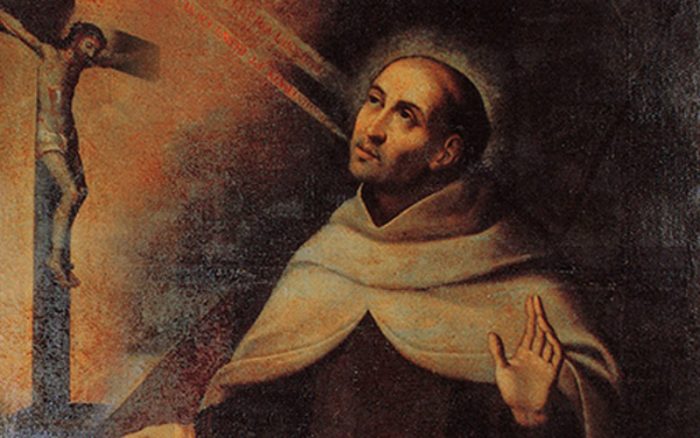Spiritual Sunday
I know it’s rather late in life, but I’m finally dipping my toes in the poetry of St. John of the Cross, the Spanish mystic famous for “the dark night of the soul.” It is in our darkest moments, spiritual guides tell us, that we find ourselves able to shed distractions find our way to God. Old identities are annihilated to make way for new.
John may have composed “On a Dark Night” when he was being imprisoned and tortured for his efforts to reform the Carmelite order. Although there’s no reference to literal imprisonment in the poem, John describes finding a secret ladder, down which he climbs disguised. His only light is “the light that burned in my heart.”
But because it leads him to reunite with Christ the beloved—the imagery appears to be taken from The Song of Solomon—the night becomes “more welcome than dawn”:
On a dark night
By St. John of the Cross
Trans. By Ken Krabbenhoft
On a dark night,
afflicted and aflame with love,
O joyful chance!,
I went out unnoticed,
my house lying silent at last.
In darkness and secure,
down the secret ladder, disguised,
O joyful chance!,
in darkness, and shielded,
my house lying silent at last,
one joyful night,
in secret: no one was watching
and I saw no other thing,
my only light and guide
the light that burned in my heart.
That same light led me
more surely than the noonday sun
to where one was waiting,
the one I knew would come,
where surely no one would find us.
O you my guide, the night,
O night more welcome than dawn,
night that drew together
the loved one and the lover,
each transformed into the other!
On my blossoming breast,
kept untouched for him alone,
there he fell asleep,
and I caressed him
while boughs of cedar stirred the air.
On the ramparts
while I sat ruffling his hair,
the air struck my neck
with its gentle hand,
leaving my senses suspended.
I stayed; I surrendered,
resting my face on my Beloved.
Nothing mattered.
I left my cares
forgotten among the lilies.
I love the tenderness of the imagery and am also struck by the unexpected reversal: the speaker is comforting Christ, not (as is customary) the other way around. Ultimately, however, there is no difference between the loved one and the lover. It is as though, in rendering himself vulnerable, Jesus is providing the speaker with the comfort that comes in comforting.
